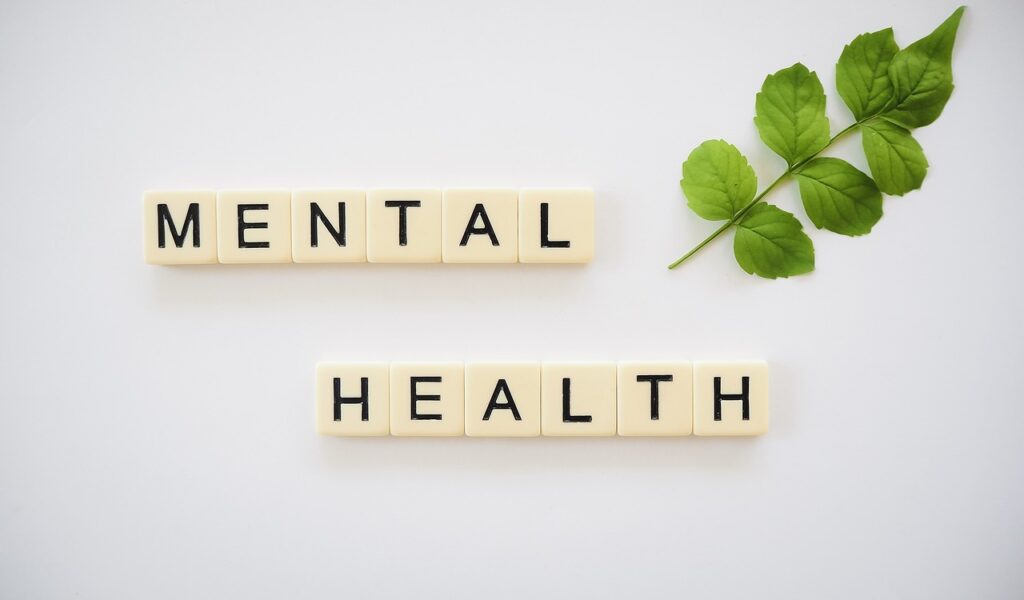The Unique Mental Health Challenges Faced by Gen Z
Generation Z, born between the mid-1990s and early 2010s, faces a unique set of mental health challenges shaped by technological advancements, societal shifts, and global events. These challenges have significantly influenced their approach to well-being and mental health.
The Role of Social Media in Mental Health
Social media plays a pivotal role in the lives of Gen Z, often acting as a double-edged sword for their mental health. While it offers connectivity and self-expression, it also introduces unprecedented pressures and anxieties.
| Social Media Impact | Percentage of Gen Z Affected | Mental Health Effect |
|---|---|---|
| FOMO (Fear of Missing Out) | 72% | Increased anxiety and depression |
| Body image concerns | 64% | Lower self-esteem and eating disorders |
| Cyberbullying | 59% | Higher rates of depression and suicidal thoughts |
| Comparison with peers | 81% | Feelings of inadequacy and stress |
| Sleep disruption | 68% | Increased irritability and decreased cognitive function |
The constant exposure to curated lives and the pressure to maintain an online presence can lead to feelings of inadequacy, anxiety, and depression. However, Gen Z is also leveraging social media as a platform for mental health awareness and support.
Academic and Career Pressures
Gen Z faces heightened academic and career expectations that contribute significantly to their stress and anxiety levels. Unlike previous generations, they are navigating a rapidly changing job market, increased competition, and the pressure to constantly upskill.
- Heightened academic competition: The pursuit of higher education has become more intense, with students feeling pressure to excel academically from an early age.
- Uncertain job market: Rapid technological advancements and economic fluctuations create anxiety about future career prospects.
- Gig economy pressures: The rise of the gig economy introduces new stressors related to job security and work-life balance.
- Student debt concerns: The looming threat of substantial student loan debt adds to the mental burden of pursuing higher education.
These pressures often result in chronic stress, burnout, and a sense of overwhelm among Gen Z individuals as they strive to secure their future in an increasingly competitive world.
How Gen Z Approaches Mental Health
Gen Z is redefining societal attitudes towards mental health by breaking down stigmas and embracing open conversations. This generation is proactively seeking support and implementing various strategies to maintain their mental well-being.
The Importance of Therapy and Counseling
Gen Z has shown a remarkable openness to therapy and counseling, viewing mental health support as an essential aspect of overall well-being. This shift in perspective has led to increased acceptance and utilization of professional mental health services.
Popular therapy methods that resonate with Gen Z include:
- Cognitive Behavioral Therapy (CBT)
- Mindfulness-Based Stress Reduction (MBSR)
- Dialectical Behavior Therapy (DBT)
- Art and Music Therapy
- Online and teletherapy sessions
- Group therapy and support groups
- Ecotherapy (nature-based therapy)
The accessibility of online therapy platforms has further encouraged Gen Z to seek professional help, allowing them to connect with therapists from the comfort of their homes.
Self-care Practices and Wellness Trends
Gen Z has embraced a holistic approach to mental health, incorporating various self-care practices and wellness trends into their daily routines. These practices aim to promote emotional balance, reduce stress, and enhance overall well-being.
Popular self-care practices among Gen Z:
- Mindfulness and meditation apps
- Digital detoxes and screen time management
- Journaling and expressive writing
- Yoga and physical exercise
- Healthy sleep hygiene practices
- Aromatherapy and essential oils
- Plant-based diets and nutrition focus
- Self-help books and podcasts
- Creative outlets (art, music, writing)
- Spending time in nature
These practices reflect Gen Z’s commitment to proactive mental health management and their willingness to explore diverse approaches to well-being.
The Impact of COVID-19 on Gen Z’s Mental Health

The COVID-19 pandemic has had a profound impact on Gen Z’s mental health, exacerbating existing challenges and introducing new stressors. The global crisis has reshaped their experiences during crucial developmental years, leading to long-lasting effects on their mental well-being.
Increased Anxiety and Isolation
The pandemic has led to a significant rise in anxiety and feelings of isolation among Gen Z. Lockdowns, social distancing measures, and the shift to remote learning and working have disrupted normal social interactions and support systems.
| Mental Health Issue | Pre-pandemic Prevalence | During Pandemic Prevalence | Percentage Increase |
|---|---|---|---|
| Anxiety Disorders | 15% | 25% | 67% |
| Depression | 12% | 22% | 83% |
| Loneliness | 20% | 35% | 75% |
| Sleep Disorders | 10% | 18% | 80% |
| Eating Disorders | 8% | 13% | 63% |
The data showcases the dramatic increase in reported mental health issues during the pandemic, highlighting the need for targeted support and interventions for Gen Z.
Coping Mechanisms Adopted by Gen Z
In response to the challenges posed by the pandemic, Gen Z has demonstrated remarkable resilience and adaptability by developing and embracing various coping mechanisms:
- Digital support communities: Online forums and social media groups focused on mental health support have gained popularity.
- Virtual therapy sessions: Teletherapy has become widely accepted, providing accessible mental health support during lockdowns.
- Mindfulness and meditation apps: Usage of mental wellness apps has surged as Gen Z seeks tools for stress management.
- Creative outlets: Many have turned to art, music, and writing as forms of emotional expression and stress relief.
- Physical fitness routines: Home workouts and virtual fitness classes have helped maintain physical and mental well-being.
- Skill development: Online courses and workshops have provided a sense of purpose and accomplishment during uncertain times.
- Virtual social events: Online game nights, watch parties, and virtual hangouts have helped maintain social connections.
These coping strategies highlight Gen Z’s resourcefulness in maintaining mental health and social connections despite physical limitations.
Gen Z’s Expectations from Brands and Institutions
Gen Z has set new standards for how brands and institutions should approach and support mental health. This generation expects authentic engagement and tangible actions from organizations in addressing mental well-being.
Mental Health Advocacy
Gen Z strongly prefers to support brands that actively advocate for mental health awareness and provide resources for well-being. This preference has led to a shift in marketing strategies and corporate social responsibility initiatives.
Examples of successful mental health campaigns by brands:
- Dove’s “Self-Esteem Project”: Promoting body positivity and self-confidence among young people.
- Nike’s “Mental Health Awareness” campaign: Featuring athletes discussing their mental health struggles and coping strategies.
- Lululemon’s “Here to Be” program: Supporting mental health initiatives through yoga and meditation.
- Instagram’s “Here for You” tool: Providing resources and support for users searching for mental health-related content.
These campaigns resonate with Gen Z by addressing mental health openly and providing tangible support and resources.
The Demand for Mental Health Resources in Schools and Workplaces
Gen Z is actively pushing for increased mental health resources and support systems in educational institutions and workplaces. This demand reflects their prioritization of mental well-being in all aspects of life.
Recommended mental health initiatives for schools and companies:
- On-site counseling services
- Mental health days as part of leave policy
- Stress management workshops and seminars
- Mindfulness and meditation spaces
- Flexible work/study hours to promote work-life balance
- Mental health first aid training for staff and students
- Peer support programs
- Regular mental health check-ins and surveys
- Access to mental health apps and online resources
- Incorporation of mental health education into curricula/training programs
By implementing these initiatives, institutions can create environments that support Gen Z’s mental health needs and foster overall well-being.
The Future of Mental Health for Gen Z

As Gen Z continues to prioritize mental well-being, the landscape of mental health support and treatment is evolving rapidly. This generation’s approach to mental health is shaping future trends and societal norms around well-being.
Emerging Trends in Mental Health Support
Several innovative trends are emerging that align with Gen Z’s needs and preferences for mental health support:
- AI-powered mental health apps: Personalized support and mood tracking using artificial intelligence.
- Virtual Reality (VR) therapy: Immersive environments for exposure therapy and stress reduction.
- Peer-led support groups: Online and in-person communities facilitated by trained peers.
- Gamification of mental health: Apps and programs that use game-like elements to encourage positive mental health habits.
- Wearable technology: Devices that monitor physical indicators of stress and provide real-time interventions.
- Personalized mental health plans: Data-driven approaches to create tailored mental health strategies.
- Integration of mental health in primary care: Holistic health models that include mental health screenings and support.
These trends reflect a move towards more personalized, accessible, and tech-integrated mental health support systems.
Long-term Implications for Gen Z’s Mental Health
The current focus on mental health among Gen Z is likely to have significant long-term implications:
- Destigmatization of mental health issues: Continued open dialogue may lead to broader societal acceptance and understanding.
- Workplace culture shifts: Increased emphasis on work-life balance and mental health support in professional settings.
- Education system reforms: Integration of mental health education and support into school curricula from an early age.
- Healthcare system changes: Greater integration of mental health services into primary care and increased coverage by insurance providers.
- Policy changes: Potential for mental health-focused legislation and increased government funding for mental health initiatives.
- Technological advancements: Continued development of innovative mental health technologies tailored to evolving needs.
- Interpersonal relationship dynamics: Shifts in how relationships are formed and maintained with a focus on emotional intelligence and mental well-being.
As Gen Z ages, their prioritization of mental health is likely to influence societal norms, potentially leading to a more empathetic and mentally aware society.
Conclusion
Understanding Gen Z’s approach to mental health and well-being is crucial for creating a supportive environment that addresses their unique challenges. By recognizing the impact of social media, academic pressures, and global events like the COVID-19 pandemic, we can better tailor mental health resources and support systems to meet their needs.
To better cater to the mental health needs of Gen Z:
- Implement comprehensive mental health education in schools and workplaces.
- Develop and promote accessible, tech-integrated mental health resources.
- Foster open dialogues about mental health to reduce stigma.
- Encourage brands and institutions to authentically engage in mental health advocacy.
- Support research into emerging mental health trends and treatments.
- Create policies that prioritize mental well-being in educational and professional settings.
- Embrace a holistic approach to health that integrates mental and physical well-being.
By taking these steps, we can support Gen Z in their pursuit of mental well-being and contribute to a society that values and prioritizes mental health for all generations.

